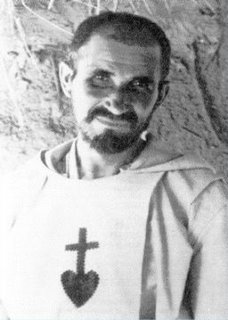The Thinker of Puritan New England (internet archive copy).
Then, I learned that Edwards was one of the subjects of Fr. Luigi Giussani's book, American Protestantism (not yet translated into English). So, I read Gura's bio of Edwards, which is fascinating because it's a secular bio of Edwards and makes the case for Edwards to a non-evangelical readership. In this, it follows in the path of an earlier bio by Perry Miller, painting Edwards as a brilliant thinker who transcends Puritanism. I came to a better understanding of Edwards through Marsden's two bios of Edwards, learning that Edwards was not unusual in his interest in Continental Philosophy and in natural science. In his introduction to Understanding Jonathan Edwards, Gerard McDermott notes that in antebellum America, Edwards name permeated most of the continuum of Protestantism. Marsden is a great biographer because he doesn't limit himself to Puritanism but grasps the greater sweep of cultural history including the European and Catholic background of Christianity in America.
For me, learning about Edwards is an adventure in better understanding my heritage as an American, as a descendent from Presybterians, and as a son of the American Revolution. What interests me is his humanity, his vibrant Christian experience, and the earliest contours of Christianity in America. I'm interested in his theology of beauty and in his observations of affectivity in religious life.
Some particular points:
- "Sinners in the Hands of an Angry God"
There's only one sentence in this that I have a problem with, and that's the comparison of God with a capricious, contemptuous child torturing a spider. The theme of "his foot shall slide in due time" is clearly explored and the analogy of man as walking unawares over a pit of destruction is very apt. We think the ground is solid beneath us, but in truth we are upheld by the mercy of God.
- And what do you do with Calvinism?
The Catholic Church has introduced me to the face of the living God in Jesus Christ. The teachings of the Church exist precisely in order to safeguard this encounter, and that this encounter may spread and grow. As a Catholic, I am interested in discovering the truth where it may be found, even among Calvinists. Lutherans may forget Reinhold Niebuhr and Martin Luther; Calvinists may forget John Calvin and Woodrow Wilson; and Evangelicals may forget Francis Schaeffer. But Catholics never will — we can't resist the glimmers of light wherever they break forth. It's my certain faith in the Church that enables me to risk treading among the Calvinists.
- double predestination and limited atonement.
Double predestination and limited atonement are mistaken beliefs. I wonder to what degree these mistakes led to the suicide of Joseph Hawley when Edwards was pastor. Another consequence of these beliefs can be a fatalism regarding the salvation of others. But given Edwards's missionary zeal, this belief did not seem to impede him. This belief was more of a hinderance in the Second Great Awakening.


